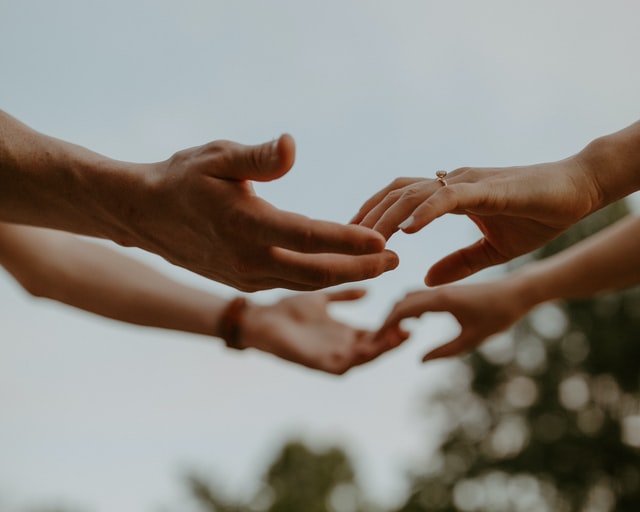
- BLOG
- Insights
Sexual wellbeing: Igniting the conversation
What springs to mind when you see these two words: sexual wellbeing. Perhaps you think of preventing STIs or unwanted pregnancy? How about painful sex, sexual trauma, or erectile dysfunction? Or maybe you focused on maximising pleasure with sex toys and fantasies like dirty talk and BSDM (bondage, discipline, dominance and submission)?
It encompasses all these aspects and many more. Sex is a physical act which we do solo or with (a) partner(s), but this also makes sex inherently relational. In addition, there is a fundamental psychological component which underpins our sense of confidence and safety during sex. It’s therefore not surprising that good sexual wellbeing is linked to a better immune system, reduced blood pressure, greater sleep quality and lower stress levels.
Unfortunately, sex is still largely regarded as a taboo subject and so seeking advice on an inability to climax, how to sext a new lover or reignite passion with a partner of 5 years is tough. And now the pandemic has not only exacerbated these existing issues but introduced new obstacles for individuals and couples. How can we nurture our sexual health? The first step is to ignite the conversation and normalise discussions around this fundamental, yet overlooked, pillar of wellbeing.
Coupled up: Challenging assumptions and reintroducing separateness
Whether you’re married, have children, cohabiting or doing long-distance, it’s very likely that your sex life has been affected by Covid-19. According to Sexologist Marieke Dewitte, we respond to stress in different ways, so some people may wish to use sex as a coping mechanism to alleviate anxiety while others may lose interest entirely. We may also invest less time and effort into self-care, thus affecting our sense of attractiveness and ability to engage sexually.
For couples whose sex life has waned, one psychologist recommends you seize the opportunity and “try that complicated position you’ve always wanted to try!” For renowned psychotherapist Esther Perel, it’s not that simple. Her bestselling novel, Mating in Captivity, explains why eroticism dwindles in the face of familiarity – one inevitable consequence of spending lockdown with a partner:
“[…] there is nothing more to transcend, no bridge to walk on, no one to visit on the other side, no internal word to enter. When people become fused – when two become one – connection can no longer happen. There is no one to connect with. Thus separateness is a precondition for connection: this is the essential paradox of intimacy and sex.”
She urges the reader to “cultivate a secret garden” by creating a space – emotional and intellectual – that is only for them. This reintroduces a degree of separateness so you can see your partner with fresh eyes and find the eroticism that defined the earlier days of the relationship.
Psychotherapist Sheryl Paul focuses on bridging the gap between expectations and reality by demystifying assumptions: “Without even knowing the specifics of your sexual story, I can tell you right off the bat that there’s nothing wrong with you.” Hollywood and the media, however, like to perpetuate the idea that you should be having “sizzling, effortless, orgasmic and magical” sex weekly. Eroticism fades under pressure, so challenge the “shoulds” you have about sex, for example, sex should involve penetration, sex should involve orgasm. In essence, try to rewrite your sex script and cultivate erotic intelligence.
Riding solo: Exploring sexuality in its entirety
For those not in a relationship, maintaining sexual wellbeing has been incredibly challenging. Individuals are navigating the usual dating pitfalls on top of pandemic guidelines which means opportunities to be intimate are far and few between. While this affects all age groups, according to the ONS, it disproportionately impacts the 71.6% of 16–29-year-olds who do not live in a couple.
On the upside, evidence suggests people are creatively adapting their sex life, for example, there has been a rise in pornography viewing, sex toy sales, sexting, and dating app downloads. This is in line with psychologist Lauren Walker’s advice to savour this time to get to know yourself better. One great starting point for women is Ferly – a mindful sex app which uses audio erotica stories, guided practices and factual podcasts to help women overcome sexual difficulties.
If you’re not comfortable with self-exploration, Walker encourages people to cultivate their sexuality in different ways from the clothes to food, music to drink: “Sexuality does not have to be about genitals, it can also be about mindset and personality too.” This is a great tip as it doesn’t frame sexual wellbeing as something problematic that requires a solution, which can add unnecessary anxiety.
Taken together, we’re inclined to agree with other commentators that Covid-19 has been a catalyst for a sexual revolution which is transforming the way we approach sex. We hope that the world’s collective struggles encourage a more open dialogue so that people appreciate the complexity of sex, revisit damaging expectations and ultimately learn to optimise all aspects of their sexual wellbeing.
Published: 14th July 2021
References
Dewitte, M., Otten, C. & Walker, L. (2020) Making love in the time of coronavirus – considering relationships in lockdown. Nature Reviews Urology 17. 547-553.
Great Britain. Office for National Statistics. 2020. Population estimates by marital status and living arrangements, England and Wales: 2019. (2020) [online] Available at: https://www.ons.gov.uk/peoplepopulationandcommunity/populationandmigration/populationestimates/bulletins/populationestimatesbymaritalstatusandlivingarrangements/2019 Accessed 1 June 2021
Lehmiller, J., Garcia, J., Gesselman, A., & Mark, K. (2020). Less sex, but more sexual diversity: Changes in sexual behaviour during the Covid-19 coronavirus pandemic. Leisure Sciences 43 (1-2).
Paul, S. (2017) Sex anxiety. Conscious Transitions [online] Available at: https://conscious-transitions.com/sex-anxiety/ Accessed on 1 June 2021.
Perel, E. (2006) Mating in captivity: Unlocking erotic intelligence. HarperCollins: USA
Williams, Z. (2021) ‘We are desperate for human contact’: the people breaking lockdown to have sex. The Guardian [online] Available at: https://www.theguardian.com/lifeandstyle/2021/feb/11/we-are-desperate-for-human-contact-the-people-breaking-lockdown-to-have-sex Accessed 1 June 2021.
